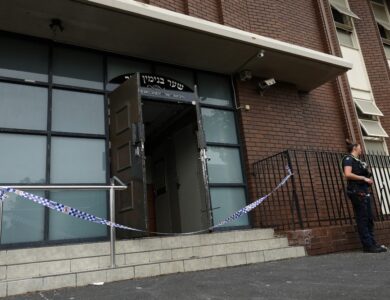Netanyahu Under Fire as Israel Strikes Spark Anger Over Hostage Negotiations

A general strike loomed over Israel on Monday, ignited by public outrage following the deaths of six hostages in Gaza. The killings have intensified criticism of Prime Minister Benjamin Netanyahu for his inability to negotiate a ceasefire-for-hostages agreement. The Histadrut, Israel’s largest labor union, threatened to bring the economy to a standstill, with Chairman Arnon Bar-David expressing deep concerns about the nation’s trajectory amidst the ongoing conflict.
The strike, the most significant since March 2023, led to temporary halts at Ben Gurion International Airport and drew participation from various municipalities, including Tel Aviv and Haifa. Demonstrators filled the streets, demanding Netanyahu’s resignation while police arrested several protesters for disrupting traffic.
Among the deceased hostages was Hersh Goldberg-Polin, who had been expected to be released during a potential ceasefire. Autopsy reports indicated they were shot at close range shortly before their bodies were recovered from an underground tunnel in Rafah. The discovery has cast doubt on ongoing negotiations, with Israeli officials expressing anger and frustration over the government’s failure to protect the hostages.
Internal divisions within Netanyahu’s cabinet have become more pronounced, with conflicting opinions on the war’s conduct and the priority given to military operations over hostage negotiations. U.S. officials have urged for renewed efforts towards a ceasefire in the coming days, highlighting the urgency of the situation. Despite the strike, some sectors, including the teachers’ union, chose not to participate, although major universities joined the actions.
As the strike unfolded, Finance Minister Bezalel Smotrich sought legal avenues to prevent the disruption, arguing that it could harm the economy during wartime. A court hearing regarding the strike was scheduled for Monday morning.








